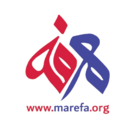إعلان حقوق الشعوب الأصلية
| جزء من سلسلة مقالات عن |
| حقوق السكان الأصليين |
|---|
| حقوق |
| منظمات حكومية |
| المنظمات الأهلية والجماعات السياسية |
| قضايا |
| التمثيل القانوني |
| تصنيفات متعلقة |
The United Nations Declaration on the Rights of Indigenous Peoples (UNDRIP) was adopted by the General Assembly on Thursday, 13 September 2007, by a majority of 144 states in favour, 4 votes against (Australia, Canada, New Zealand and the United States) and 11 abstentions (Azerbaijan, Bangladesh, Bhutan, Burundi, Colombia, Georgia, Kenya, Nigeria, Russian Federation, Samoa and Ukraine).[1]
In May 2016 Canada officially removed its objector status to UNDRIP, almost a decade after it was adopted by the General Assembly. By now also the other 3 objectors have, to various degrees, turned their vote.
While as a General Assembly Declaration it is not a legally binding instrument under international law,[2] according to a UN press release, it does "represent the dynamic development of international legal norms and it reflects the commitment of the UN's member states to move in certain directions"; the UN describes it as setting "an important standard for the treatment of indigenous peoples that will undoubtedly be a significant tool towards eliminating human rights violations against the planet's 370 million indigenous people and assisting them in combating discrimination and marginalisation."
UNDRIP codifies "Indigenous historical grievances, contemporary challenges and socio-economic, political and cultural aspirations" and is the "culmination of generations-long efforts by Indigenous organizations to get international attention, to secure recognition for their aspirations, and to generate support for their political agendas."[3] Canada Research Chair and faculty member at the University of Saskatchewan,[4][5] Ken Coates, argues that UNDRIP resonates powerfully with Indigenous peoples, while national governments have not yet fully understood its impact.[3]
. . . . . . . . . . . . . . . . . . . . . . . . . . . . . . . . . . . . . . . . . . . . . . . . . . . . . . . . . . . . . . . . . . . . . . . . . . . . . . . . . . . . . . . . . . . . . . . . . . . . . . . . . . . . . . . . . . . . . . . . . . . . . . . . . . . . . . . . . . . . . . . . . . . . . . . . . . . . . . . . . . . . . . . .
المفاوضات والاعتماد
| UN الجمعية العامة القرار 61/295 | |
|---|---|
| التاريخ | 13 December 2007 |
| الكود | A/61/295 (Document) |
| الموضوع | Indigenous rights |
ملخص التصويت | 143 مع 4 ضد 11 امتنع |
| النتيجة | Adopted |
ملاحظات
الهامش
- ^ "Declaration on the Rights of Indigenous Peoples". United Nations Permanent Forum on Indigenous Issues. Retrieved 11 December 2015.
- ^ http://www.un.org/esa/socdev/unpfii/documents/FAQsindigenousdeclaration.pdf
- ^ أ ب Coates, Ken (18 September 2013), From aspiration to inspiration: UNDRIP finding deep traction in Indigenous communities, The Rise of the Fourth World, The Centre for International Governance Innovation (CIGI), http://www.cigionline.org/blogs/aspiration-inspiration-undrip-finding-deep-traction-indigenous-communities, retrieved on 20 September 2013
- ^ Ferguson, Mark (2011-10-12). "News". News.usask.ca. Retrieved 2013-12-24.
- ^ http://www.uwaterloo.ca/ University of Waterloo
هوامش اضافية
- UN (18 March 2008) (PDF), United Nations Declaration on the Rights of Indigenous Peoples, United Nations, http://www.un.org/esa/socdev/unpfii/documents/DRIPS_en.pdf, retrieved on 20 September 2013
وصلات خارجية
- United Nations Declaration on the Rights of Indigenous Peoples as Adopted by the General Assembly, 13 September 2007 Full text of the Declaration.

